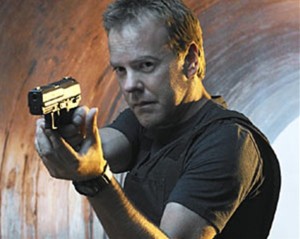Most people know that I grew up very religious.
(here, I take a deep breath and type very slowly)
In person I’m happy to bring this up and talk about it, because it’s so much easier to gauge the other person’s feelings on the topic. I usually know when to back off or shut up, when someone wants to hear more, and how I should phrase my experiences so that I’m not transmitting any judgment or disrespect. Hopefully, anyways.
Writing about this is far more difficult. Being honest while still showing love and respect is hard enough in most areas of life, and this is people’s raison d’etre. All that’s to say: I dearly hope I can manage to explore this topic with the utmost respect and sincerity, whatever beliefs you (you!) might have.
My religious past is something that strongly informs my worldview. I know what it’s like on both sides of the fence. Usually, that means reading any mainstream (secular) writing about religion is purely obnoxious. The people who feel most compelled to spout are usually those that have no real familiarity with what being part of a church community is actually like. So, it was with a little bit of surprise that I encountered this very decent article on Joshua Harris and the purity movement of the late 90’s early 2000’s.
This was quite the read for me.
As a teenager, I went to multiple purity seminars where I signed my name on a heart to give to God. I went to a bible camp every summer where there were 2-3 sermons every day, half of which were about sex and lust. Joshua Harris was frequently mentioned by folks in these circles and at church – the article does not exaggerate his prevalence in this movement.
One of the core tenets of this ideology of purity is that by having any kind of lustful thought or desire, you are sinning against God. For me, this meant I was in a constant, unending state of sin.
Have you ever wronged someone you love – intentionally or not – so badly that there is no amount of apologizing that would make a difference? The kind of harm that you can only hope that the other person will forgive you for…eventually? You know the way that guilt hangs so heavily from your heart, makes you want to sink to the bottom of the ocean? That is what my guilt over my sin felt like.
It was relentless, inescapable, and all-consuming. For years, I prayed regularly and earnestly for God to take away my lustful thoughts and dreams. I wrote about it in my journals, on my blog, and took up hours and hours of my mentors’ time to anguish about it. And this is as someone who didn’t start having sex until 19 (right around the time I left the church). I barely dated in high school.
—
Hopefully now you can imagine the strength of my feelings on this topic, having gone and done all of the things I swore not to do, to find that very little of what I was told turned out to be true:
You really can fall in love more than once. There is more than one possible companion out there.
It is possible, and often necessary, to talk openly, without shame or judgment, about past relationships with someone you’re dating.
Sex can be safe. Birth control works. STD tests are accurate. It’s possible to fully trust someone on these issues without being married.
People have wildly different desires and expectations from relationships. Not everyone needs the same thing. For most people, your virginity is not important.
There is no platonic ideal of sex. Sex can be a lot more different than you might imagine and still be perfect.
If you’re with a good person, you will not be loved less for your past mistakes.
Sex is not inherently ethereal, transcendent, or magical in any way. It is made fabulous by passion and creativity.
You might indeed lose parts of yourself through some of your relationships. But this will not dilute you. You will also walk away with a piece of them, too. What they leave with you will make you a far better person than you were before.
These are a few of the things I wish i’d heard as a teenager. What the purity movement gave me was the exact opposite.
I hope that Christianity can embrace sex-positivity, some day. But I’m not holding my breath.



